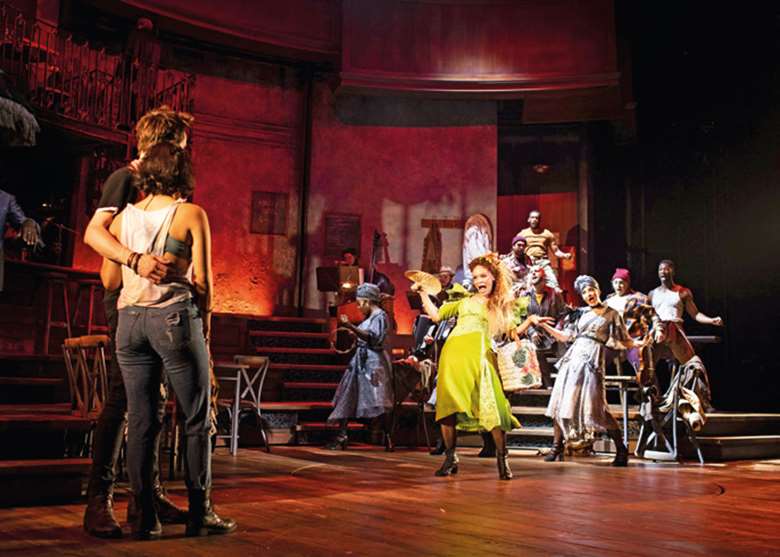Hadestown
Sarah Lambie
Saturday, December 1, 2018
Lovely to look at and to listen to but missing something in the telling

Helen Maybanks
Hadestown has had a long journey of development. It began life as a concert-tour, which became a concept-album released in 2010. An expanded theatrical version of it opened at the New York Theatre Workshop in 2016, directed by Rachel Chavkin, and it is this which has come, via a run in Canada, to the National Theatre this year – with a Broadway transfer planned after the show's departure from London.
Knowing this history helps to explain my one chief difficulty with the production: it feels like watching a beautifully staged concert of a concept album. There's nothing wrong with this, per se: a through-sung narrative of this kind isn't far removed from the basic component parts of an opera; however it feels throughout as though something is missing, and I've concluded it's the real emotional punch that an epic story like that of Orpheus and Eurydice, Hades and Persephone has the potential to pack when told theatrically.
Due to the ‘sudden indisposition’ of Reeve Carney, his understudy Adam Gillian was thrown on at presumably very short notice as Orpheus on the night I saw the show, and his performance suited the role really well, with a wide-eyed naivety shared by Eva Noblezada's Eurydice. The fates of both characters are inevitable right from the start since both appear helplessly weak in the face of much stronger forces: hunger and temptation, and Patrick Page's growling Trump-esque Hades whose basso profundo voice causes a ripple of surprise and delight in the audience every time it gets an airing. The sense of inevitability is heightened, of course, by its being a well-known myth – and it must be said that the friend I took along enjoyed the show more, having forgotten what the outcome of the story is, and therefore being much more invested in the journey out of the Underworld.
The joys of the production are in its design, with set by Rachel Hauck and costumes by Michael Krass which place the show in a 1940s-ish New Orleans-style bar; the ensemble performances both from the musicians and cast – Seyi Omooba stands out particularly in David Neumann's compelling choreography; the suave, cynical, twinkling resignation of Andr de Shields's Hermes; and the songs, which have a wonderful folk-jazz style to them and are both catchy and lyrically inventive.
Students would certainly enjoy this production, and I am positive that they would also listen to the album afterwards. It's beautiful to look at and to listen to, but dramatically it feels limited, and I came away largely unmoved.
Hadestown runs until 26 January at the National Theatre. A series of talks and events accompany the production: details on all and booking information can be found at nationaltheatre.org.uk/shows/hadestown

